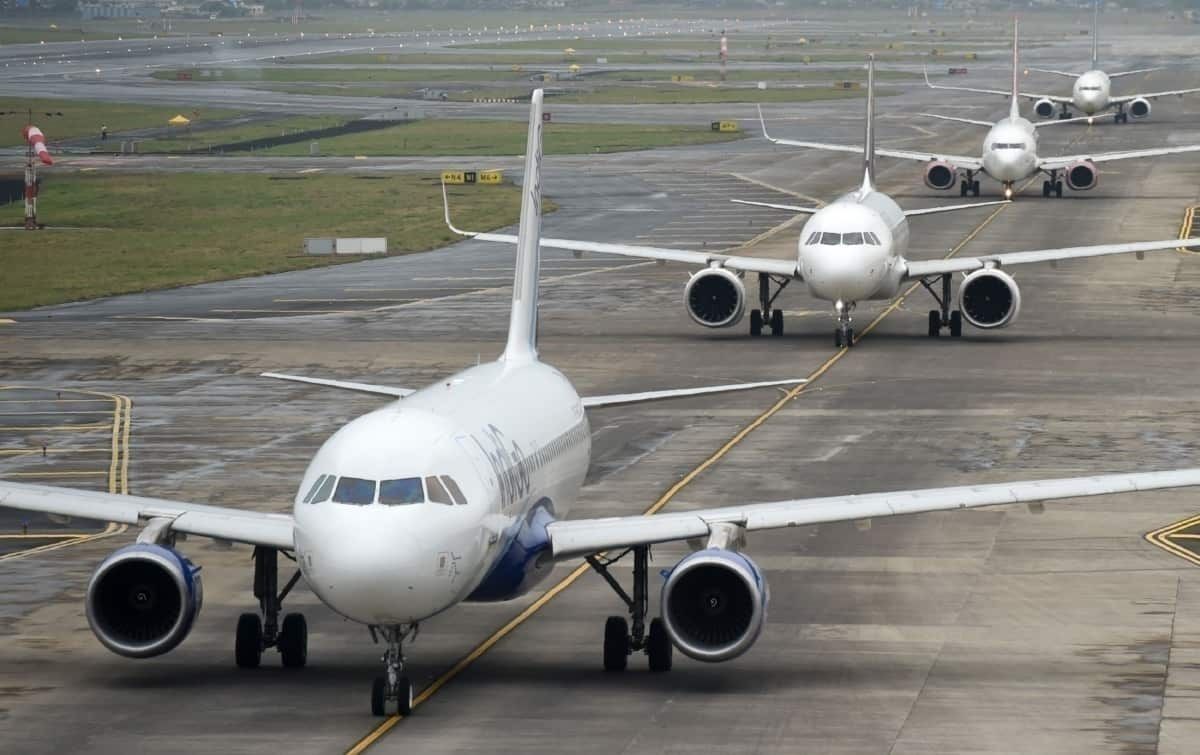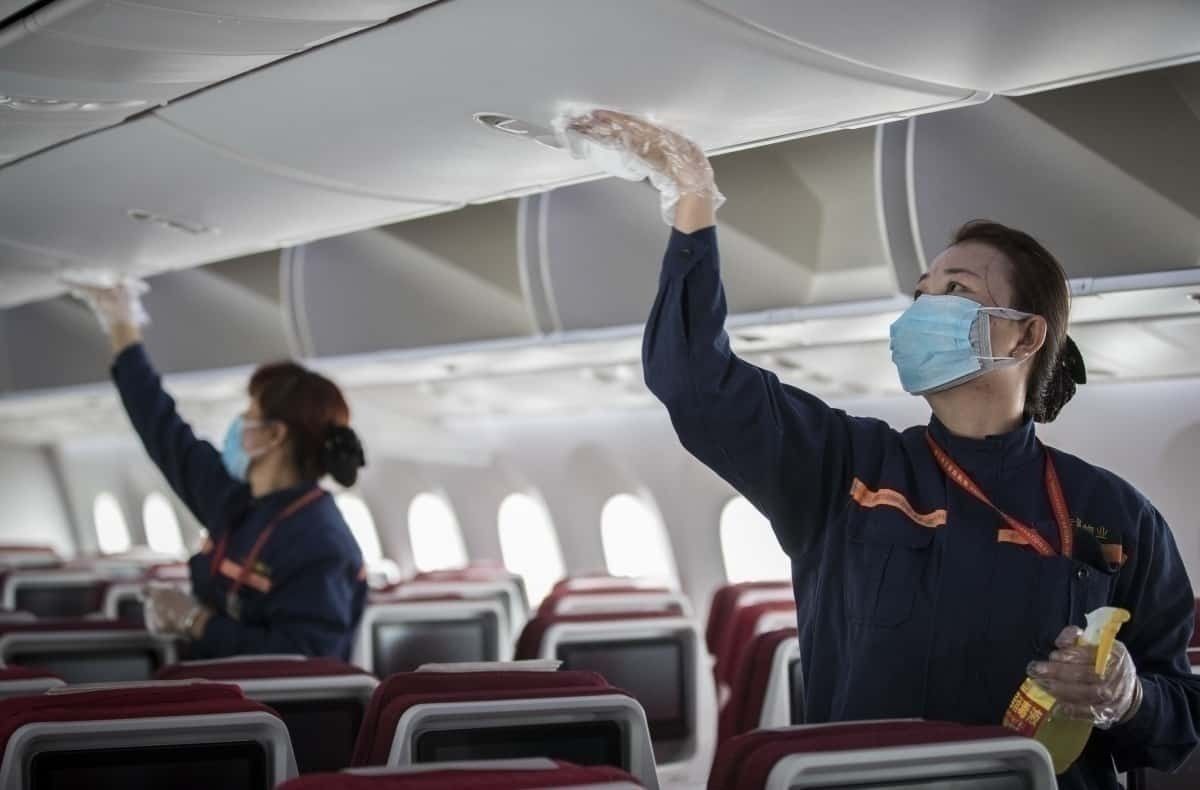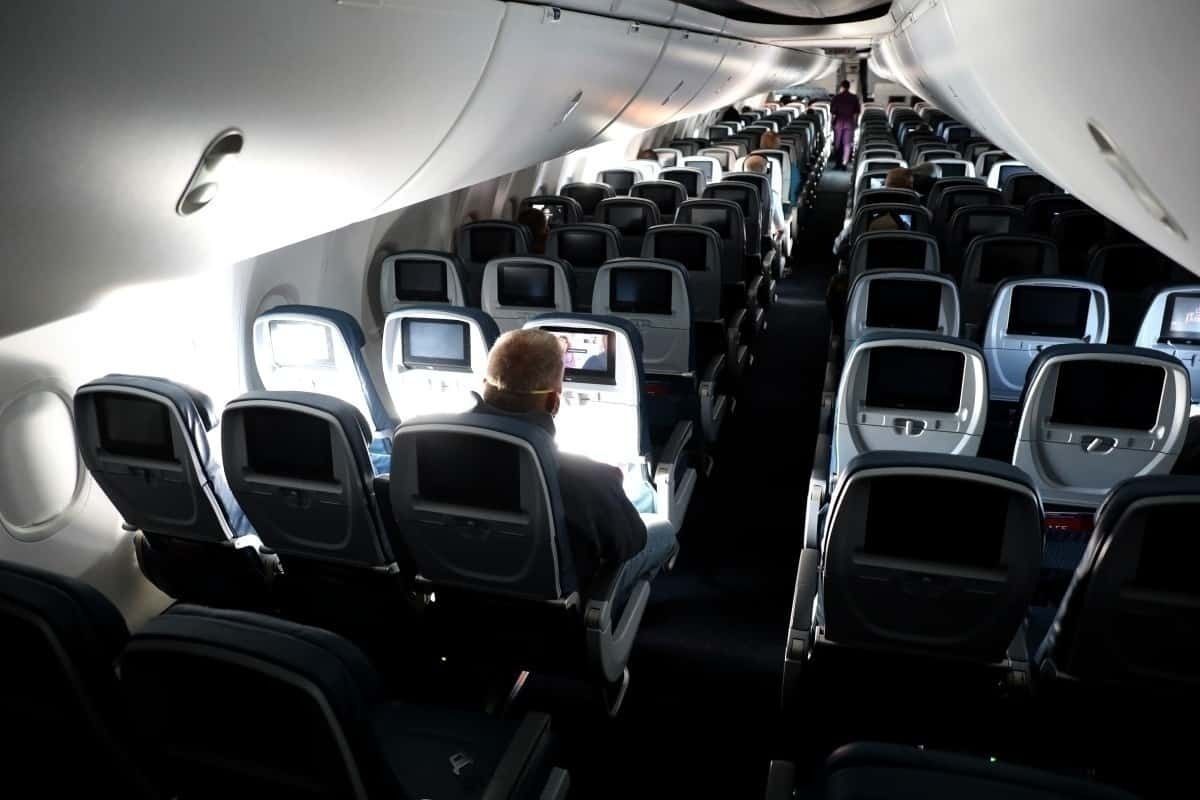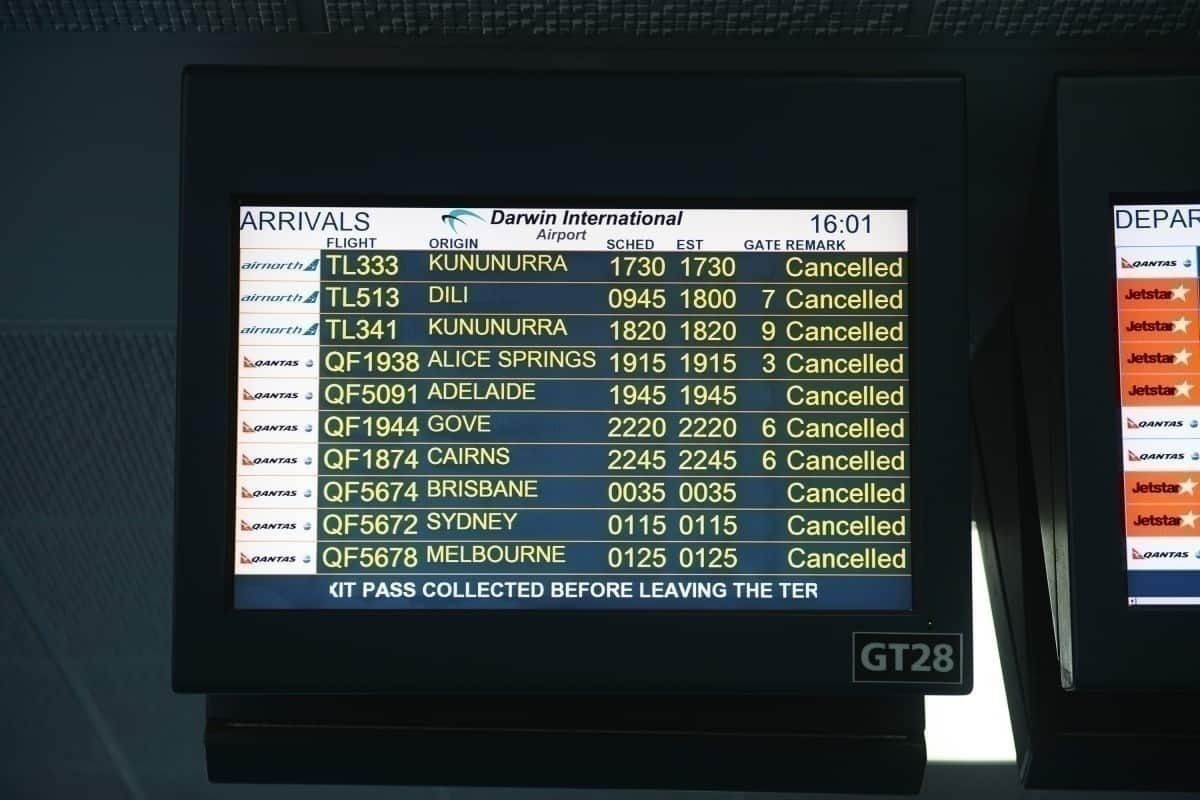Flying at the moment might seem a little bit scary, given the current pandemic. However, it is reassuring to know that at this time, it is still very safe. What's more, sitting on an airplane does not increase your risk of catching coronavirus any more than sitting in an office or visiting a shopping mall. Here's what you need to know.
How clean are airplanes?
Walking onto a plane, you should feel confident that the utmost is being done to protect your safety and the safety of those you love. Across the board, this is largely true.
Even pre-coronavirus, airlines had strict cleaning schedules that meant cabins were neat and tidy for the next load of passengers. These days, cleaning protocols have only heightened in importance. Carriers are disinfecting all surface areas where germs can linger, and some are providing complimentary sanitizer for extra reassurance.
The cabin is a well-sanitized environment, but to find out exactly what your airline of choice is doing, it's best to look at their website. You will be able to find information about how they are keeping you safe through their cleaning procedures. These usually include preventative measures around the airport and gates as well.
Stay informed: Sign up for our daily aviation news digest.
What about the air?
Since the outbreak of the virus, many myths have surfaced regarding the cleanliness of cabin air. It's important to realize that cabin air is not recirculated through the cabin. Those who sit at the back of the plane are not consistently wafted with air from the front. Instead, cabin air is exchanged between 20 and 30 times per hour.
It enters your area through overhead vents and leaves in small passages under your feet. It is then combined with fresh air from outside and run through a HEPA filter. The filters used are between 85-99.9% effective at trapping viruses as well as other bacteria. The most effective HEPA filters are the same kind used in hospitals when cleanliness is also of the utmost importance.
Rest assured that everything is being done to keep the air you breathe fresh as a standard.
Safeguarding your financials
Your health might not be the only thing you're worried about when taking your next trip. How safe is flying right now for your wallet? Unfortunately, there is no one-size-fits-all answer to this. With the nature of the virus, new restrictions are being imposed and lifted on an almost daily basis.
If in doubt, it's best to check your refund and cancellation policy with your airline. In some cases, if you are unable to fly, you may be issued a travel voucher to be used at another date. Alternatively, you may be given a full refund.
While it may seem like there is little you can do to protect yourself from sudden cancellations, be sure to keep informed on your local government's policies as well as those in the countries that you are traveling to. While this may not be a fail-safe way to avoid cancelation, it can help you choose destinations that are less likely to have quarantine restrictions.
The short answer: flying is safe
The long and short of the matter is that flying these days is still safe. Of course, it is tough to eliminate your risk completely, but keeping it as low as possible means that you can still jet-set across the globe, providing you follow official guidance on staying safe.
How do you feel about flying right now? Let us know your thoughts in the comments.




